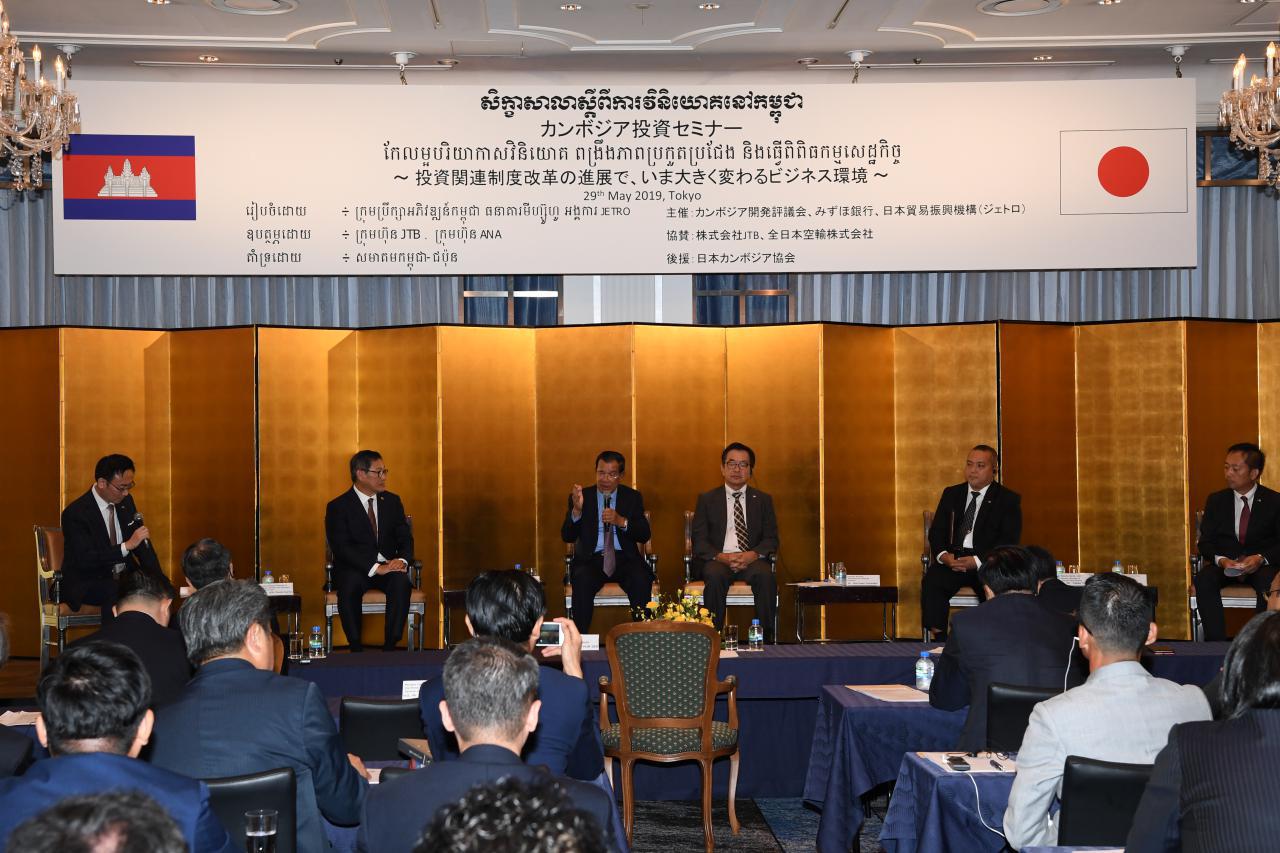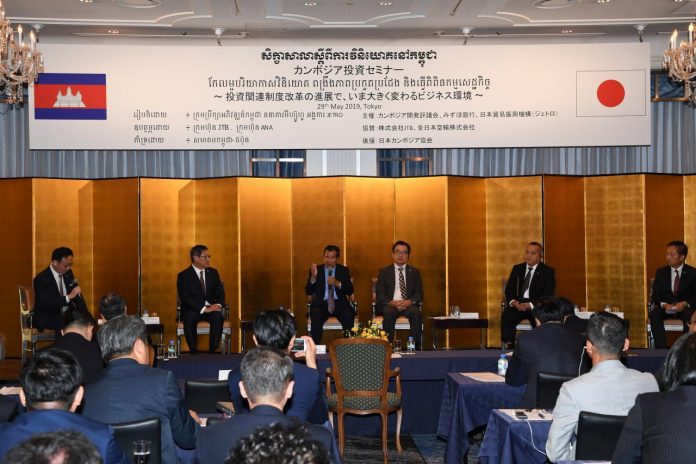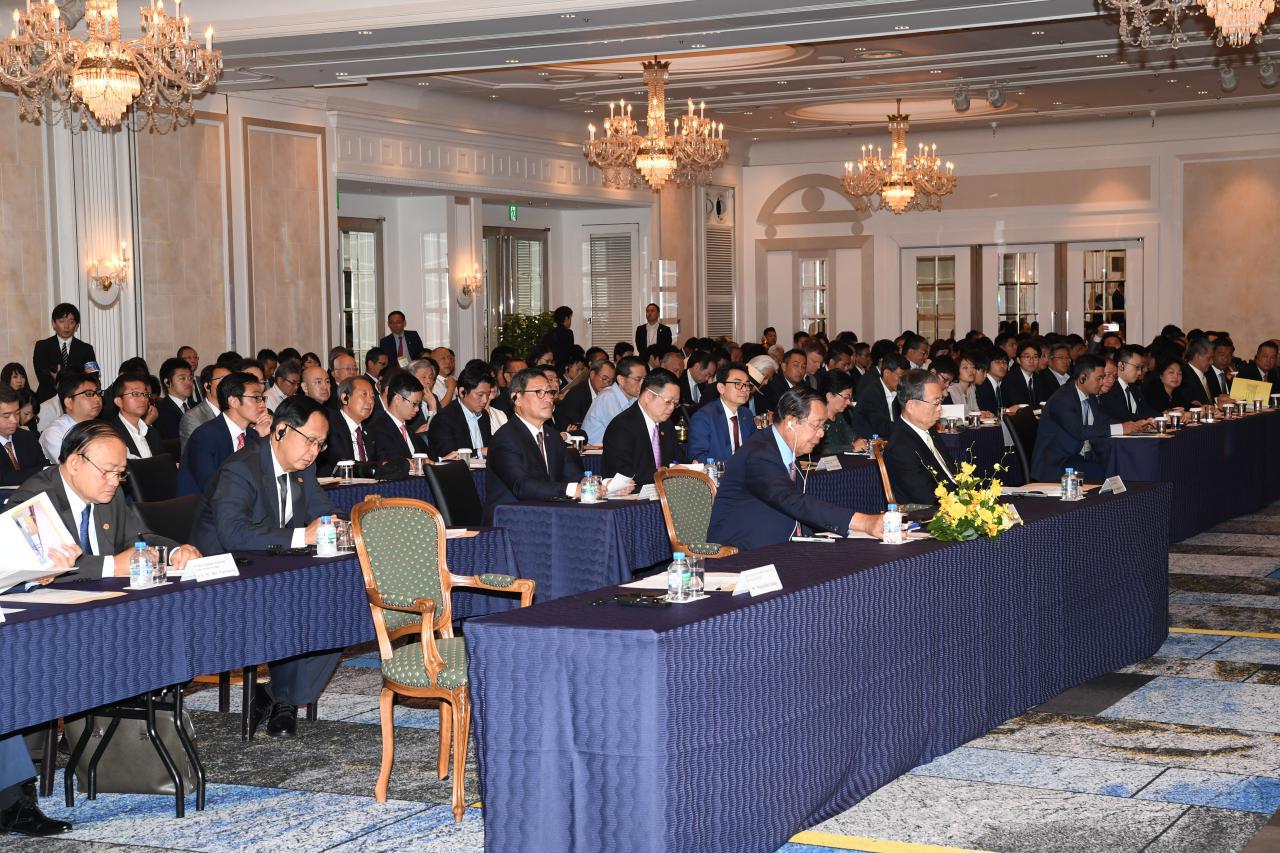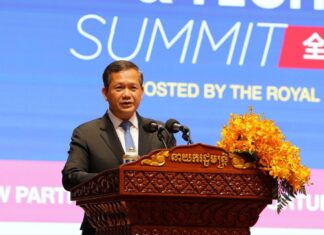Phnom Penh, May 29, 2019 –Prime Minister Samdech Akka Moha Sena Padei Techo Hun Sen of the Kingdom of Cambodia has underlined the five priority sectors stated in Cambodia Industrial Development Strategy 2015-2025 aiming to diversify the economy and transform Cambodia’s industrial structure from being labour-intensive to skills-based by 2025.
The five priority sectors are (1) new industries or manufacturing ventures that can break into new markets with high value-added products that are creative and highly competitive, (2) small and medium-sized enterprises (SMEs) in all sectors, (3) agro-industrial production for export and domestic markets, (4) industries supporting the agriculture, tourism and garment sectors and serving regional production chains linked with global markets or value chains and (5) industries serving regional production lines and of future strategic importance, pointed out Samdech Techo Hun Sen while addressing a Seminar on Investment in Cambodia organised in Tokyo, Japan this morning by the Council for the Development of Cambodia (CDC) in collaboration with Japan External Trade Organisation (JETRO) and Mizuho Bank, on the sidelines of the 25th International Conference on the Future of Asia.
The Premier also highlighted Cambodia’s attention and commitment to boost trade and investment in the country and recalled its measures to improve trade facilitation and reduce business cost, ranging from ending the role of some institutions to reducing electricity tariffs and increasing power supplies as well as reducing the number of public holidays from 28 to 21 days from next year, which will help reduce the cost of doing business by an estimated US$400 million a year.
Samdech Techo Hun Sen added that Cambodia will finalise the new Law on Investment and Law on Special Economic Zones by the end of June with an aim to improve the modernisation and production of domestic industries, strengthen links to regional and global supply chains, promote competitiveness and support economic and social policies.
In particular, he underlined, the Law on Investment will provide incentives for activities for which there are currently no incentives such as import substitution and expenses for the well-being of workers as implemented by Japanese companies.









![Special Lecture by Samdech Akka Moha Sena Padei Techo HUN SEN, President of the Senate of the Kingdom of Cambodia, on “Leadership Experiences and Vision for Peace” to the 11th Plenary of the International Parliament for Tolerance and Peace (IPTP) [Unofficial Translations]](https://pressocm.gov.kh/wp-content/uploads/2024/12/468161445_1188047276010391_3141496335218348185_n-100x70.jpg)
